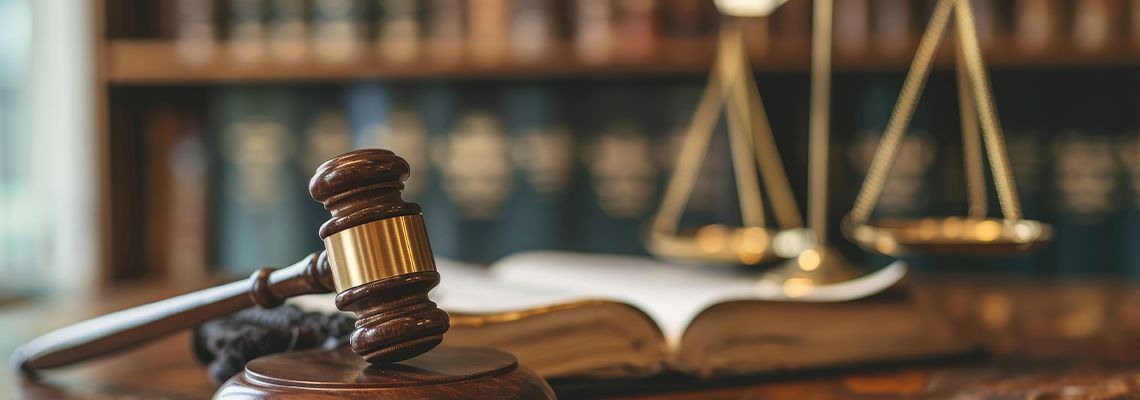Understanding the Role of Pretrial Motions in Federal Criminal Cases

Pretrial motions play an important role in federal criminal cases, helping attorneys shape the trajectory of their client’s defense. If you’re facing federal criminal charges, you must understand these motions and their purpose.
At Warren A. Zimmerman, P.A., Attorney Warren A. Zimmerman has represented private individuals and businesses in federal court litigation and civil and criminal trials and appeals for over 45 years.
Warren does not believe in one-size-fits-all solutions. Instead, he takes the time to carefully investigate every aspect of your case and provide focused, personalized legal strategies.
His law firm provides skilled legal guidance and tailored representation in Land O’ Lakes, Florida, and nearby areas, including Wesley Chapel, Tampa, Lutz, Dade City, and Zephyrhills.
Pretrial motions are formal requests filed by attorneys on behalf of their clients, asking the court to make decisions on legal issues.
In federal criminal cases, the pretrial phase is not just about preparation; it’s a critical window of opportunity to influence the case before it goes to trial.
These motions serve various purposes, such as defending constitutional rights, challenging the prosecution’s evidence, limiting the scope of trial arguments, or shaping the courtroom procedure.
When used effectively, pretrial motions can impact the course of the case, whether by suppressing evidence, dismissing certain charges, or gaining leverage during plea negotiations.
Typical pretrial motions include motions to suppress evidence (if it was obtained unlawfully), dismiss charges, and compel discovery (to obtain additional evidence that the prosecution may be withholding).
Whether you’re facing allegations of fraud, drug trafficking, or other federal offenses, pretrial motions will likely play an important role in your case.
While federal criminal law is governed nationwide, certain motions, strategies, and procedures can intersect with Florida laws.
For example, if federal charges stem from evidence collected by state law enforcement agencies in Florida, evidence obtained in violation of Florida’s Stop and Frisk Law (Florida Statute §901.151) may be challenged through a motion to suppress.
Similarly, if a federal investigation in Florida involves wiretapping, your attorney could argue violations of Florida’s Security of Communications Act (Florida Statute §934.03) if state or local authorities disregarded regulations.
Pretrial motions can also address jurisdictional issues, especially when both federal and state authorities have interests in your case.
As an experienced criminal defense and civil litigation attorney, Warren has a deep understanding of these overlaps and how they can influence procedural or evidentiary challenges. This level of analysis could give you an edge when building a defense.
Pretrial motions are not merely routine paperwork—they can potentially alter the course of a case. Your attorney may file motions to challenge actions taken against you or leverage motions to gain greater access to evidence for your defense.
Here are some examples of how pretrial motions can benefit defendants in federal cases:
If evidence was obtained unlawfully or without proper warrants, a motion to suppress can ask the court to exclude that evidence from being presented during trial.
For instance, if federal agents conducted a search without probable cause, suppressing the resulting evidence may severely weaken the prosecution’s argument.
A motion to dismiss argues that certain charges lack legal standing or sufficient evidence to proceed. If successful, this motion could result in a reduction or outright dismissal of charges.
The prosecution is legally obligated to share pertinent evidence with the defense. If they fail to comply, filing a motion to compel discovery gives you full access to the information you need to defend yourself appropriately.
Federal cases often involve sensitive issues of impartiality. If the jury pool in your case may be biased due to publicity or other factors, your attorney can file a motion for a change of venue to ensure your trial occurs in a fair setting.
When procedural errors or insufficient evidence are found, your attorney may file a motion to dismiss the indictment. If successful, this can result in the charges being dropped entirely, potentially saving you from further legal proceedings.
Complicated federal criminal cases may require expert testimony to challenge evidence or provide specialized insights. A motion for expert witness funds allows the defense to secure the financial resources needed to present a strong, well-supported case.
Every federal case is different, and a strategic combination of pretrial motions can make the courtroom proceedings more favorable for defendants.
Warren A. Zimmerman, P.A. delivers committed legal advocacy and creates tailored defense strategies. Warren takes the time to listen to your concerns and examine the details to find effective solutions for your situation.
He carefully evaluates the facts, conducts thorough legal research, and applies his skills to help protect your rights throughout the federal criminal process. If you need assistance with your case in Land O’ Lakes or surrounding areas, call Warren A. Zimmerman, P.A. today.